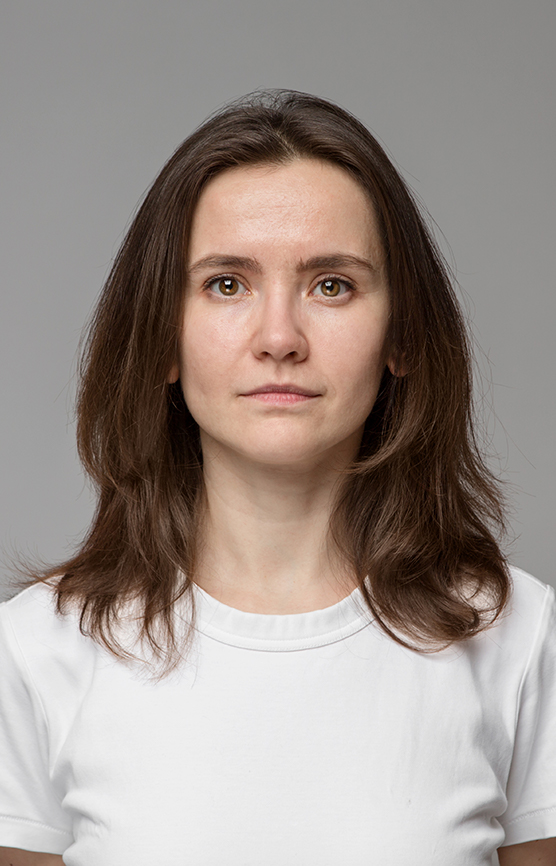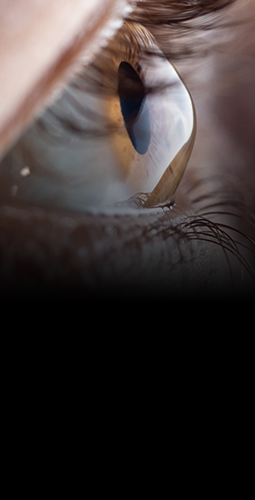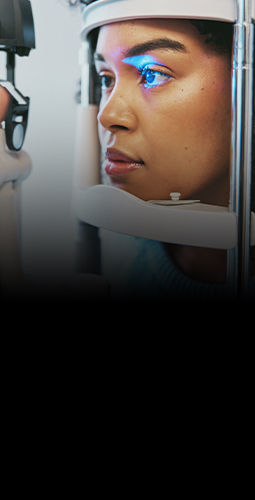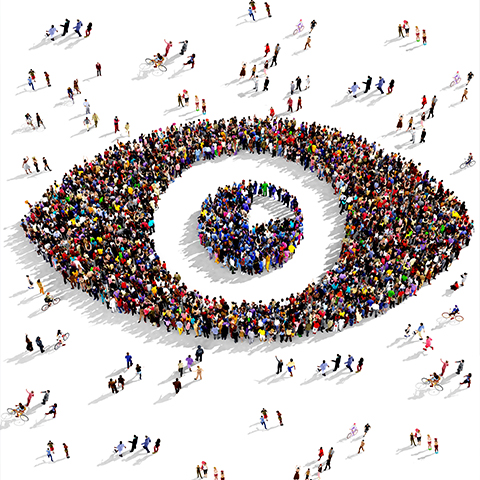We Genuinely Care About Your Eye Health
Your eyes serve as windows to your world, shaping how you experience and interact with your environment. Preserving healthy vision is more than simply seeing clearly—it’s about maintaining and enhancing your overall quality of life.
Regular eye exams play a crucial role in proactive eye care, allowing us to perform comprehensive tests and provide personalized attention. By detecting eye diseases at their earliest stages, we can help safeguard your vision.
We’re deeply committed to supporting our patients throughout their lives so they can relish in the gift of healthy vision for many years.
Call to Request Appointment
Eye Exams Let Us Take a Look at Overall Health
Routine eye exams can reveal more than just the health of your eyes. Eye exams can serve as a gateway to your overall health, offering insight into the health of your blood vessels, nerves, and internal tissue.
By taking a comprehensive look at your eyes, we can gain valuable clues about potential underlying conditions like diabetes, thyroid diseases, hypertension, and heart disease.
Early Detection Can Help Preserve Sight
Did you know that many eye diseases often develop slowly or without noticeable symptoms during their early stages?
You can take a proactive step towards preserving your vision by scheduling routine eye examinations. We can comprehensively evaluate your vision and eye structures, allowing us to spot early signs of changes when eye health issues can be effectively managed or treated.
Whether you are visiting us for routine care or seeking treatment for a known eye condition, we prioritize personalizing your care and taking the time needed to address your unique needs.
Cataracts
Cataracts are cloudy areas that form on the eye’s clear lens, impairing vision by making objects look blurry, hazy, or less colorful.
While most cataracts develop due to age-related changes in the lens, factors such as diabetes, UV exposure, smoking, or eye injuries can lead to earlier development.
The primary treatment for cataracts typically involves a surgical procedure to replace a clouded lens with an artificial lens. Regular eye exams can aid early detection of cataracts, allowing for more treatment strategies to be implemented.

Corneal Diseases
Corneal diseases affect the clear, dome-shaped surface covering the eye’s front surface. These conditions can cause redness, discomfort, and vision changes. Corneal diseases can result from bacterial or viral infections, allergies, injuries, or tissue changes.
The risk factors vary depending on the specific condition, but general factors include wearing poorly fitted contact lenses, having a weakened immune system, and experiencing trauma to the eye.
Treatments range from medications, including eye drops and ointments, to corneal transplants in severe cases.
Regular eye exams are crucial in early detection and management of corneal diseases.

Diabetic Retinopathy
Diabetic retinopathy is a sight-threatening condition caused by damage to the retina’s blood vessels due to uncontrolled diabetes. Symptoms can include:
- Blurred vision
- Dark or blank spots
- Seeing floaters
- Poor night vision
Treatment options include laser surgery, vitrectomy, and injections into the eye. Regular diabetic eye exams play a crucial role in monitoring eye health and increasing the likelihood of early detection or implementing timely treatment to preserve vision.

Glaucoma
Glaucoma, called the silent thief of sight, is a group of eye diseases that damage the optic nerve, often due to abnormally high pressure in the eye. Untreated glaucoma causes gradual peripheral vision loss, which can progress to complete blindness.
Treatments typically focus on reducing eye pressure with medications, laser treatment, or surgery.
Regular eye exams are critical for early detection and prevention of vision loss from glaucoma.

Macular Degeneration
Macular degeneration, also known as age-related macular degeneration (AMD), is a leading cause of vision loss among people over 50. It causes damage to the macula, a part of the retina needed for sharp, central vision.
Symptoms can include:
- A dark or empty area in your central vision
- Distorted or crooked shapes & lines
- Reduced color vision
Risk factors include poor nutrition, UV exposure, genetics, and smoking. While there’s no cure for macular degeneration, treatments, such as intraocular injections and laser treatment, can delay its progression and improve vision.

Enhancing Quality with Our Diagnostic Technology
At the Vision Center of Delaware, our knowledgeable team combines technology and personalized care strategies to protect your vision.
We go beyond just providing care—we believe in developing meaningful relationships, understanding your unique needs, and creating customized care plans that prioritize your long-term eye health.
We’ve invested in technology that enhances our ability to achieve accurate diagnoses and deliver prompt treatments. We recognize the importance of early detection in improving health and vision outcomes, and we’re dedicated to continually improving for the benefit of our patients.
Optical Coherence Tomography (OCT)
Optical coherence tomography (OCT) is a noninvasive imaging technique that utilizes light waves to generate comprehensive cross-sectional and 3D images of the eye. It’s often called a digital eye exam because it provides a detailed view of each retinal layer and measures tissue thickness.
OCT can be an invaluable tool in diagnosing and managing many eye conditions, including retina and optic nerve disorders, as we can visualize more structural details than traditional examination methods.
Fundus Photography
Fundus photography provides magnified views of the back of the eye, including the retina, optic nerve, and blood vessels. These high-resolution images can help us monitor changes to eye health, which can be crucial for the precise diagnosis and management of various eye conditions.
Eye conditions such as glaucoma, diabetic retinopathy, and age-related macular degeneration can be detected and monitored using fundus photography.
Humphrey Visual Field Analyzer
The Humphrey Visual Field Analyzer (HVFA) is a technology that can evaluate central and peripheral vision, helping identify blind spots (scotomas) or vision loss.
This type of visual field testing is commonly used to detect and monitor progression in conditions like glaucoma, stroke, brain tumors, or neurological disorders.
By providing precise measurements, HVFA can aid in assessing the severity of eye conditions and the effectiveness of treatments.
Routine Eye Exams Help Safeguard Your Sight
At VCD, we believe vision is a precious gift that deserves individualized care and attention. Every eye tells a unique story, and our compassionate team is dedicated to supporting you and your loved ones, so your story can be one of clear, healthy vision.
Because at the Vision Center of Delaware, we see the importance of every detail in your vision. And together, we can help you keep seeing the extraordinary details of the world around you for years to come.
Visit us for your routine eye exam today so we can help you prioritize your vision care.
Call to Request AppointmentOur Location
Find us across the street from the Kelway Plaza and the Newark Urgent Care Center on E Main St. Plenty of free parking is available directly behind our building.

Our Address
- 317 E Main St
- Newark, DE 19711
Contact Information
- Phone: 302-737-5777
Hours of Operation
- Monday: 9:00 AM – 5:00 PM
- Tuesday: 9:00 AM – 5:00 PM
- Wednesday: 9:00 AM – 5:00 PM
- Thursday: 9:00 AM – 5:00 PM
- Friday: 9:00 AM – 1:30 PM
- Saturday: Closed
- Sunday: Closed
*We are closed for lunch from 1:30-2:30 Monday through Thursday.
Our Services
Our Brands


























